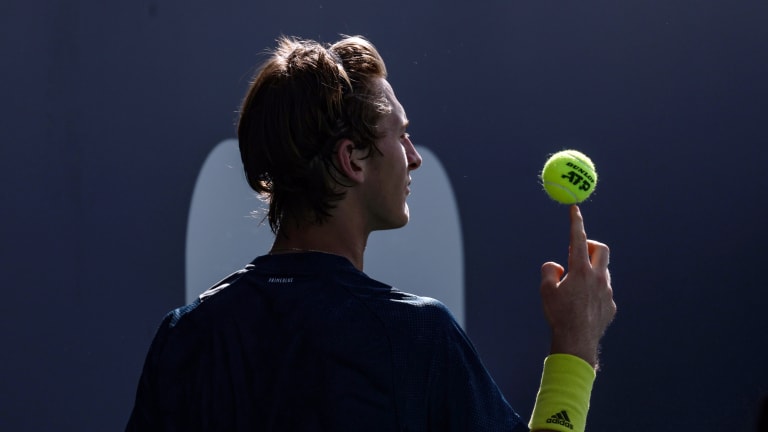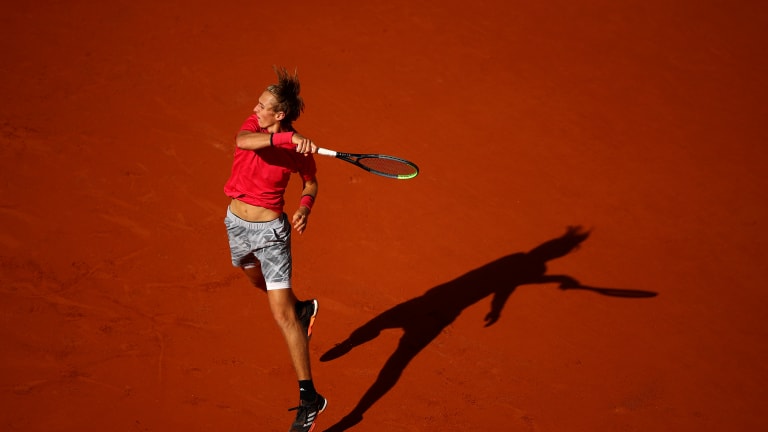When 20-year-old Sebastian Korda arrived for the qualifying rounds at last fall’s pandemic-delayed Roland Garros, he had never before won a tour-level match.
Less than two weeks later, he had become the youngest American to reach the fourth round of a Grand Slam since Michael Chang in 1991, earning a chance to play his childhood idol—and the namesake of his beloved cat, Rafa—on Court Philippe Chatrier.
The idol in question was, of course, Rafael Nadal himself. The clay-court savant ended Korda’s unforgettable run, allowing him just four games in a two-hour demolition. As if hoping to briefly extend his dream Roland Garros experience, Korda unabashedly asked his hero for a signed shirt as they tapped racquets at the net. The Spaniard happily obliged.
“To my friend Sebastian,” he wrote. “All the best in your tennis career.”
Despite the loss, a wide-eyed Korda described the encounter as the coolest moment of his life, betraying the fact that he navigates his matches with an enviable combination of intensity and chill. Standing 6’5”—not counting the unruly blond hair that adds an inch or two to his lanky frame—Korda has a slightly bow-legged stroll that seemingly saves every bit of spare energy for battle.
His approach to tennis has been similarly unbothered, several steps removed from the pressure-packed fast track so often traveled by top American juniors. Despite being a highly touted talent living just down the road from the famed IMG Academy, Korda never seemed to sweat the speed at which his breakthrough would come.

![“I loved [Marat] Safin growing up,” Korda says of the former No. 1. “He was as cool as it got on the court. I think I modeled my backhand after his.”](https://images.tennis.com/image/private/t_16-9_768/f_auto/tenniscom-prd/rqmbdhcjqoczbzi1pehb.jpg)
